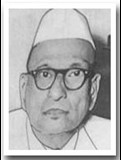Generalities
Weakness or debility common to all acids is felt more by the action of this acid esp. in DIGESTIVE TRACT, giving a very relaxed feeling in the stomach, with a craving for stimulants. Weakness; is out of proportion to the disease; from some deep seated dyscrasia. It affects the blood and blood-vessels, causing haemorrhages; violent, of thin, black blood from all the orifices. Veins (of feet) distended. Purpura haemorrhagica. Removes long lasting black and blue spots, with soreness and stiffness of the part, after trauma; follows Arnica. TREMBLING, INTERNAL; wants to be held. Sourness; of the body; of stomach. Suited to topers; old persons esp. women; in climacteric years; weak children with no other complaint. Profuse acrid or stringy discharges. Parts feel stiff and tight. Pains increase gradually and end abruptly. As of a blunt plug being driven in. Great painfulness. Pains felt during sleep. Disappear on waking. Gnawing pains. Lead poisoning. Gangrene following mechanical injuries. Burning, darting pains. Shocks as from pain. Ulcers become red and blue and become painful. Writer’s cramp.
Worse
Open air. Cold. Alcohol Injuries; surgical operations. Concussion of brain. ODOUR OF COFFEE. Climacteric. Towards evening. Excessive heat or cold. Touch. Pressure. Sprains. Lifting arms. Drinking cold water.
Better
Hot drinks. Hands near head. Moderate temperature. Warmth.
Mind
Must do everything in great hurry. Sullen, impatient, angry because things move so slowly. Fretful and irritable; over the slightest cause, nervous fatigue and tendency to take fright. Vaccillating and morose. Unwilling to answer questions; says yes or no with difficulty. Constant crying or weeping. No one does anything to please him. Seriousness alternating with buffoonery.
Head
Brain feels loose; in forehead falling from side to side worse walking in open air, better sitting quiet in room. Compressive pain in occiput better by holding the hand near head. Thrusts in temples (right) as if a plug were driven in. Electric like shocks; in forehead, temples. Hair; falls out, turns grey.
Eyes
Intra-ocular haemorrhage, following trauma. Eyelids difficult to open. Feeling as of a lump in outer canthi; moves to inner canthi on closing eye and returns to outer on opening. Eyes; smart, burn, and lachrymation, while reading.
Ears
Feeling as of a leaf lying before the ear.
Nose
Oozing of dark, thin blood worse odour of coffee; of old people.
Face
Deathly pale or wrinkled. Feels as if the white of an egg had dried on it.
Mouth
Aphthae; during protracted disease, esp. in children with marasmus. Gums bleed easily. Offensive breath. Pyorrhoea. Destruction of teeth in diabetes mellitus. Bloody saliva from mouth. Ulcers spread rapidly.
Throat
Sore. Stringy lemon-yellow mucous hangs from posterior nares; in diphtheria. Looks white-washed. Liquids regurgitate, on swallowing.
Stomach
Heartburn. Sour eructations; sets teeth on edge. Craves brandy and fruits. Hiccough; of drunkards; nausea; with shivering. Vomiting, sour; of drunkards; worse lying on left side. Weak, relaxed feeling at stomach worse after stools. Drinks chill the stomach, and rejected unless mixed with liquor. Vomits mucous instead of food. Coughs; before vomiting, during pregnancy. Sweats after eating; esp. warm food. Averse to smell of coffee.
Abdomen
Colic, with sensation as if hernia would protrude. Spleen enlarged, hard, painful; on coughing. Diarrhoea; very foul, green, black or of hacked stools; orange yellow; from unripe fruit and oysters; from least indigestion. Piles oozing moisture. Rectum feels as if it has a big ball; haemorrhoidal tumours prevent stools. Sinking sense in abdomen after stools.
Urinary
Pain in the bladder if urging for urinating is not attended to. Haematuria.
Female
Distressing nightmares before menses, or after menses. Erosion of cervix; in the aged; easily bleeding. Flushes of heat, followed by sweat and a feeling of tremors all over the body; during climacteric. Menses; too early and too profuse. Acrid, burning leucorrhoea. Gangrene of vagina, after prolapse. Prolapse of vagina and uterus from weakness.
Respiratory
Cough, then eructations or vomiting. Bloody expectoration; during climaxis. Larynx moves up and down violently and rapid motion of alae nasi, during dyspnoea better hanging down legs.
Back
Weakness of spine, cannot sit or stand. Large abscess on right side neck.
Extremities
Fingers jerk while writing. Writers’ cramp. Knees painfully weak. Ankles weak, cannot walk. Jerking of fingers during sleep. Jerking of the tendons.
Fever
HOT flushes; then trembling; or cold sweat worse after warm ingesta; worse upper parts; better motion. Drenching sweats. Disproportionate weakness during fevers, like typhoid.
Skin
Cicatrices turn red and blue and become painful. Ecchymoses. Carbuncles, boils, gangrene. Itching all over the body. Nodular urticaria. Bed sores; abscesses.
Related
Ars; Lach; Sepia
Complementary
Pulsatilla

